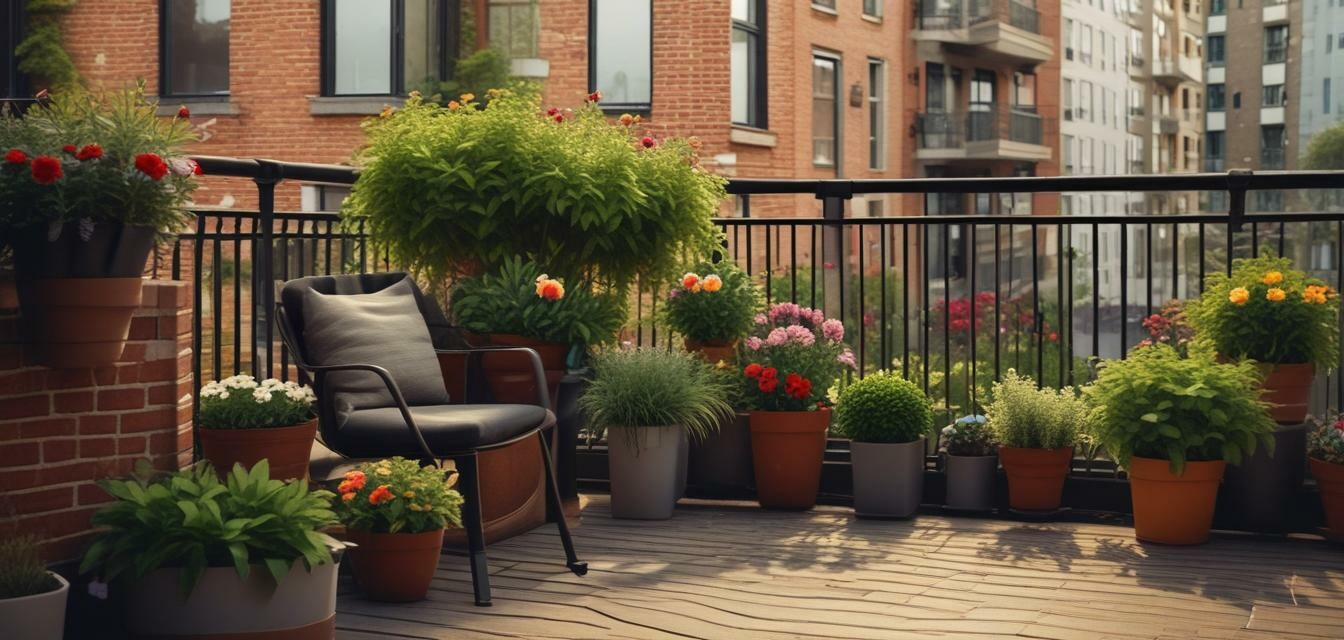
The Rise of Smart Gardening Technology in 2025
Key Takeaways
- Smart gardening tools are transforming how urban gardeners manage their space.
- Automation and technology improve efficiency, making gardening more accessible for everyone.
- Environmental sustainability is a significant focus in the development of gardening technologies.
- Balcony gardens can thrive with the right smart technology and care.
As we step into the year 2025, urban gardening is experiencing a renaissance, primarily fueled by advancements in smart gardening technology. Balcony gardeners are embracing these innovations, making it easier to cultivate vibrant greenery in limited spaces. From automated watering systems to smart sensors that monitor plant health, the rise of technology in gardening is reshaping how we connect with nature within urban environments.
The Growing Need for Smart Gardening Solutions
Urban dwellers often face constraints such as limited space, time, and resources; however, the desire to grow their own plants remains strong. Smart gardening tools help overcome these challenges by providing simple and efficient solutions. These innovations cater to various needs, whether you're a novice or an experienced gardener, making the joys of gardening accessible to everyone. Some major advantages include:
- Time-saving: Automation allows for less time spent on maintenance.
- Health monitoring: Sensors provide in-depth insights about plant conditions.
- Water efficiency: Automated systems conserve resources while ensuring plants receive adequate hydration.
- Sustainable practices: Many smart gardening tools are designed with eco-friendly principles.
Popular Smart Gardening Technologies in 2025
Here are some of the leading smart gardening technologies that are making waves in the urban gardening scene:
| Technology | Description | Benefits |
|---|---|---|
| Smart Watering Systems | Automated irrigation systems that provide precise water amounts based on soil moisture levels. | Water conservation, regular hydration schedule, reduced manual labor. |
| Plant Sensors | Devices that monitor soil moisture, sunlight exposure, and temperature, notifying users when adjustments are needed. | Improves plant health, user-friendly alerts, enhances growth conditions. |
| App-Controlled Features | Mobile apps enable users to control their garden remotely, keeping track of plant care schedules. | Convenience, real-time data access, tailored gardening recommendations. |
| Hydroponic Systems | Soil-less gardening solutions that use nutrient-rich water to grow plants. | Space-saving, faster growth rates, less maintenance. |
| Vertical Gardens | Wall-mounted systems that optimize limited space while providing a beautiful green backdrop. | Maximizes space usage, aesthetic appeal, promotes air quality. |
Benefits of Smart Gardening Tools
In addition to making gardening easier, smart tools come with numerous other advantages that can significantly enhance the urban gardening experience:
- Enhanced growth: Better monitoring means healthier plants.
- Intuitive designs: The possibilities for both aesthetic and functional improvements are limitless.
- Customization: Many smart devices allow users to tailor settings based on the specific needs of their plants.
- Community connection: Many devices connect to social platforms where users can share tips and experiences.
Emerging Trends in Balcony Gardening
The integration of technology into balcony gardens also extends to broader trends within the gardening community:
- Eco-Friendly Products: As sustainability takes center stage, many brands focus on producing eco-conscious smart gardening products. Discover more in our News and Trends section.
- Community Gardening: Urban spaces are embracing community gardening initiatives that incorporate technology for collective gardening efforts.
- Educational Resources: Online platforms and apps now offer gardening courses to help enthusiasts improve their skills and knowledge about smart gardening practices.
- DIY Innovations: Many urban gardeners are creating their own smart tools using available technology, fostering creativity in gardening spaces.
Preparing Your Balcony for Smart Gardening
To set up a successful smart garden on your balcony, consider the following steps:
- Assess your space: Measure your balcony and consider sunlight exposure to determine the best plants to grow.
- Choose the right tools: Invest in smart devices that cater to your gardening style and needs.
- Plan your layout: Vertical gardens or container plants can maximize space and aesthetic appeal.
- Understand maintenance: Familiarize yourself with the care requirements of your chosen plants and smart gardening gadgets.
Tips for Beginners
- Start small: Begin with a few easy-to-care-for plants.
- Educate yourself: Research the latest smart gardening technologies that suit your level of expertise.
- Join online communities: Engage with fellow balcony gardeners to share tips and success stories.
- Experiment: Don't be afraid to try different smart devices and plants to find what works best for you.
Final Thoughts
The rise of smart gardening technology in 2025 marks an exciting period of innovation for urban gardeners. These tools not only simplify the gardening process but also encourage sustainable practices and enhance the overall gardening experience. As more individuals begin to integrate technology into their gardening routines, the future holds even more promise for vibrant, sustainable urban greening efforts.
Pros
- Increased plant health through precise monitoring.
- Time-saving automation for busy urban gardeners.
- Reduces water waste and promotes sustainable practices.
- Enhances the aesthetic value of balcony spaces.
Cons
- Initial cost of smart gardening tools can be high.
- May require a learning curve for new users.
- Dependency on technology can pose challenges in case of malfunctions.